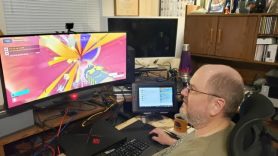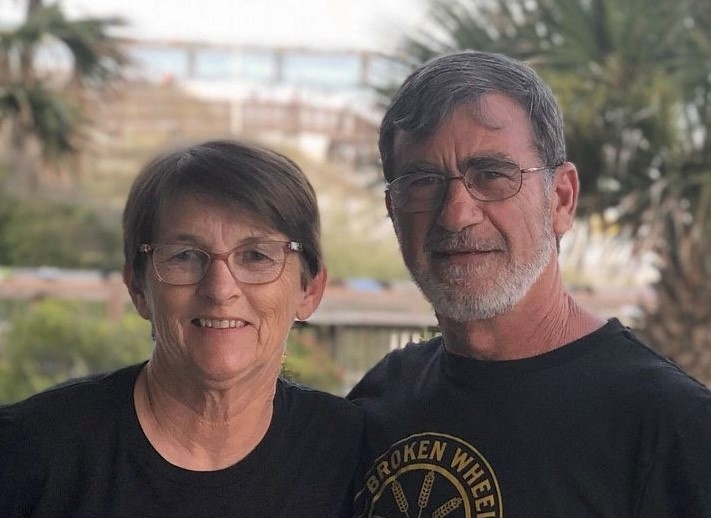- Diseases
- Acoustic Neuroma (16)
- Adrenal Gland Tumor (24)
- Anal Cancer (70)
- Anemia (2)
- Appendix Cancer (18)
- Bile Duct Cancer (26)
- Bladder Cancer (74)
- Brain Metastases (28)
- Brain Tumor (234)
- Breast Cancer (726)
- Breast Implant-Associated Anaplastic Large Cell Lymphoma (2)
- Cancer of Unknown Primary (4)
- Carcinoid Tumor (8)
- Cervical Cancer (164)
- Colon Cancer (168)
- Colorectal Cancer (118)
- Endocrine Tumor (4)
- Esophageal Cancer (44)
- Eye Cancer (36)
- Fallopian Tube Cancer (8)
- Germ Cell Tumor (4)
- Gestational Trophoblastic Disease (2)
- Head and Neck Cancer (14)
- Kidney Cancer (130)
- Leukemia (342)
- Liver Cancer (50)
- Lung Cancer (286)
- Lymphoma (278)
- Mesothelioma (14)
- Metastasis (30)
- Multiple Myeloma (100)
- Myelodysplastic Syndrome (60)
- Myeloproliferative Neoplasm (6)
- Neuroendocrine Tumors (16)
- Oral Cancer (102)
- Ovarian Cancer (178)
- Pancreatic Cancer (160)
- Parathyroid Disease (2)
- Penile Cancer (14)
- Pituitary Tumor (6)
- Prostate Cancer (150)
- Rectal Cancer (58)
- Renal Medullary Carcinoma (6)
- Salivary Gland Cancer (14)
- Sarcoma (238)
- Skin Cancer (300)
- Skull Base Tumors (56)
- Spinal Tumor (12)
- Stomach Cancer (66)
- Testicular Cancer (28)
- Throat Cancer (92)
- Thymoma (6)
- Thyroid Cancer (100)
- Tonsil Cancer (30)
- Uterine Cancer (86)
- Vaginal Cancer (18)
- Vulvar Cancer (22)
- Cancer Topic
- Adolescent and Young Adult Cancer Issues (22)
- Advance Care Planning (12)
- Biostatistics (2)
- Blood Donation (18)
- Bone Health (8)
- COVID-19 (360)
- Cancer Recurrence (120)
- Childhood Cancer Issues (120)
- Clinical Trials (628)
- Complementary Integrative Medicine (22)
- Cytogenetics (2)
- DNA Methylation (4)
- Diagnosis (238)
- Epigenetics (6)
- Fertility (62)
- Follow-up Guidelines (2)
- Health Disparities (14)
- Hereditary Cancer Syndromes (128)
- Immunology (18)
- Li-Fraumeni Syndrome (8)
- Mental Health (122)
- Molecular Diagnostics (8)
- Pain Management (62)
- Palliative Care (8)
- Pathology (10)
- Physical Therapy (18)
- Pregnancy (18)
- Prevention (936)
- Research (390)
- Second Opinion (78)
- Sexuality (16)
- Side Effects (616)
- Sleep Disorders (10)
- Stem Cell Transplantation Cellular Therapy (216)
- Support (408)
- Survivorship (328)
- Symptoms (182)
- Treatment (1788)
Mantle cell lymphoma survivor creates COVID-19-killing computer game
3 minute read | Published April 12, 2021
Medically Reviewed | Last reviewed by an MD Anderson Cancer Center medical professional on April 12, 2021
Musician Jeff Blankenship was playing guitar in the orchestra pit during a local theatre’s live production of “American Idiot” when he began experiencing severe stomach pains.
“I had to leave in the middle of the show,” he says. “That’s how bad it was.”
The pain, he soon learned, was caused by mantle cell lymphoma, a rare type of non-Hodgkin lymphoma.
Jeff had been diagnosed with and treated for the disease eight years earlier at MD Anderson, where chemotherapy sent the cancer into remission. But now it was back.
This time, his oncologist prescribed a newer treatment.
“Mantle cell lymphoma is known to relapse and become resistant to chemotherapy,” says Felipe Samaniego, M.D., Jeff’s oncologist. “Clinical trials in recent years have led to newer, non-chemotherapy treatments.”
A second remission, thanks to targeted therapy
Jeff benefited from one of those new therapies after his relapse. He began taking ibrutinib, a type of targeted therapy drug known as a kinase inhibitor. Kinases are proteins that signal cancer cells to divide and multiply. Ibrutinib blocks these signals, so the cancer cells never get the message to expand their numbers.
The treatment put Jeff into remission. It’s been seven years, and he continues to show no signs of cancer. Today, he’s taking a newer kinase inhibitor, acalabrutinib, which causes fewer side effects than ibrutinib in some patients.
“I take two pills a day, and I feel great,” he says. “When my medical team asks me to rate my quality of life, I say, ‘Ten, with a capital ‘T.’”
Getting revenge against COVID-19
Last year, Jeff retired from his “real” job as a program manager with a well-known computer corporation. The COVID-19 pandemic had arrived, lockdown was underway, and he had lots of free time on his hands.
Instead of cleaning closets or binge-watching TV, Jeff used his “quaran-time,” as he calls it, to develop Korona Kill, a computer game that allows players to shrink themselves to the size of an ant, then run around inside a human body, blasting scary coronaviruses with laser guns.
“It’s a cathartic way for people to get revenge against the virus and feel like they have some control,” says Jeff, who posted the game online, where it’s available for anyone to play, free of charge.
“It’s whimsical, cartoonish and suspenseful all at the same time,” Jeff says. “It’s my way of spreading joy.”
An award-winning musician
Selecting the game’s music was especially gratifying for Jeff, who plays guitar in a trio that won a Country Music Association of Texas award last year.
His band specializes in a genre known as “Americana,” which incorporates country, folk, gospel, rhythm and blues, and rock and roll.
“It’s music that has its roots in America,” Jeff says. “Think Johnny Cash, Bruce Springsteen and Bob Dylan.”
The pandemic brought the group’s live performances to a halt, so Jeff turned his attention to producing music. He recently opened a recording studio to help up-and-coming artists record their music and get noticed.
“I’ve been doing my own thing for so long,” he says. “It’s great to work with other musicians and help them realize their vision.”
Virtual visits ease follow-up lymphoma care
Jeff continues to receive quarterly checkups at MD Anderson, where he “feels like family.”
“You get close to your medical team,” he explains, “because you see them so regularly.”
When the pandemic struck, his appointments transitioned from in-person to online. During one of those virtual visits, he demonstrated Korona Kill from his home while medical staff gathered around the clinic’s computer to check out the game.
“Their enthusiasm inspired me to create a cancer-killing game,” he says. “That’s on my to-do list.”
Request an appointment at MD Anderson online or by calling 1-877-648-1630.
Related Cancerwise Stories

It’s whimsical, cartoonish and suspenseful all at the same time.
Jeff Blankenship
Survivor





